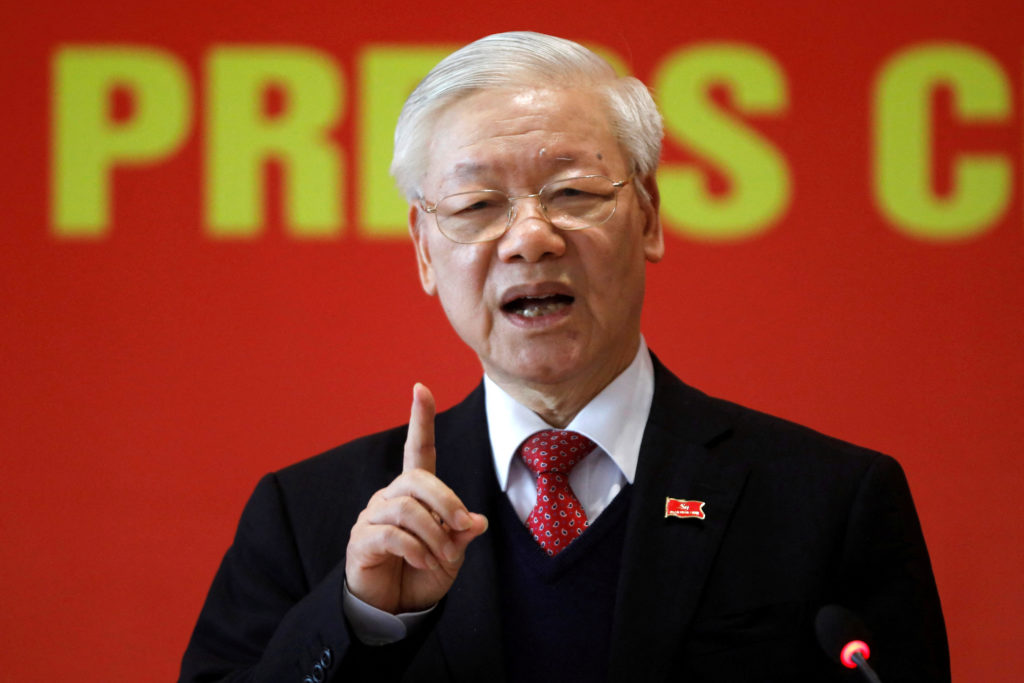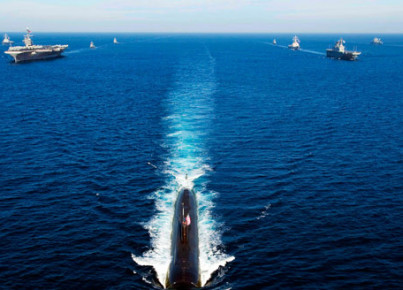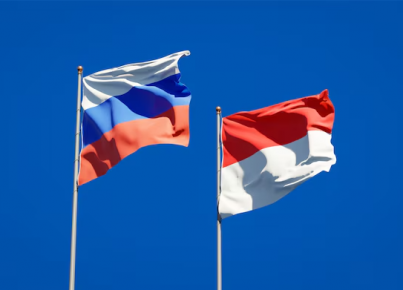The general secretary of the Communist Party was in his third term. Inflexible internally, protagonist of the ruthless anti-corruption campaign of the "fiery furnace", flexible on the international level in accordance with its bamboo diplomacy which guaranteed Hanoi's recent success
By Lorenzo Lamperti
Born into a peasant family under French colonization and Japanese domination. Grew up during the war against the United States. Student of historical sciences in the Soviet Union. Editor of the Party's theoretical magazine, then its ideologist and finally undisputed leader. Nguyen Phu Trong, general secretary of the Vietnamese Communist Party whose death was announced yesterday, was not a figure like any other. Neither for Vietnam, nor for Asia. And, increasingly, it wasn't for the world either. Over the past ten months, Joe Biden, Xi Jinping and Vladimir Putin have appeared alongside him in series. No other world leader can say the same. All this while the various Amazon, Apple, Samsung and BYD are competing to gain space in what is becoming a high-quality production hub, a crucial hub of globalization amid the turbulence of the dispute between the USA and China.
Trong led Vietnam through the elements, riding the waves instead of suffering them. While the ruthless "fiery furnace" anti-corruption campaign operated internally, it extolled bamboo diplomacy externally. Internal inflexibility, also or above all useful for getting rid of political rivals, was therefore accompanied by great flexibility on the international scene. As a convinced Marxist-Leninist, Trong has cultivated the historical-ideological bond with Beijing, preserving the security link with Russia. And starting a historic thaw with Washington with his historic trip to the White House in 2015, the first for a Vietnamese leader. A useful move to diversify international relations and add further stability protection for a country with a jagged and violent history. Almost a thousand years of Chinese domination first, then the "hot" effects of the Cold War with American bombs.
Pessimistic rumors have been circulating about the health of Trong, 80, for some time. Already a few years ago there was talk of a "heart attack". In recent months he had missed at least two important appointments: the meeting with Indonesian president Joko Widodo, who was traveling to Hanoi, and the celebrations of the 70th anniversary of the victory in the war against France. He then reappeared a month ago to welcome Putin. But the images next to the Russian leader showed him in less than reassuring conditions, so much so that they were not circulated in state media. In recent days, there was a transfer of power to President To Lam, a figure who in the Vietnamese system has mainly ceremonial functions. The signal of the seriousness of the disease came with the awarding of the Order of the Gold Star, generally awarded posthumously. Then, the official announcement.
His health had been questioned since 2021, when at the XII Party Congress he obtained an unprecedented third mandate, a year ahead of his Chinese "colleague" Xi Jinping. The recent history of Hanoi and Beijing, as well as the experiences of Trong and Xi, have often traveled in parallel. While Deng Xiaoping launched the Chinese reform and opening up, Le Duan in Vietnam prepared the Doi Moi to open the Vietnamese socialist economy to the market. Trong became general secretary in 2011, a year before Xi. Again like the Chinese president, Trong has built his reputation on ostentatious inflexibility in matters of security and incorruptibility, a medal he used to defeat his rival Nguyen Tan Dung at the 2016 Congress. A victory of ideology on the market, it was said At that time. But Hanoi then signed free trade agreements with the European Union and the United Kingdom, promoting RCEP in the Asia-Pacific. The pressure on Washington to obtain recognition as a market economy seems close to producing the desired result, with Hanoi having now made itself indispensable for the diversification of global supply chains and has significantly raised its production standards.
And it matters little if behind the scenes the political conflict continued even after the start of Trong's third term. In the space of a year, the general secretary got rid of two presidents. First Nguyen Xuan Phuc, who aspired to take his place, then Vo Van Thuong, considered his dolphin. In total, eight Politburo members were expelled within a few years. We are now expected to convene a central committee to appoint an interim general secretary. In addition to President To Lam, Prime Minister Pham Minh Chinh, prime minister and former police general from the powerful Ministry of Public Security, is also in the running.
In any case, the nomination will be valid "only" until the XIV Congress in January 2026, when the final choice will be made. In Beijing, as in Washington and Moscow, they will carefully observe the solution to the puzzle of Trong's succession. But Vietnam intends to continue with conviction on the path of neutrality in foreign policy and economic development through openness to the world.






